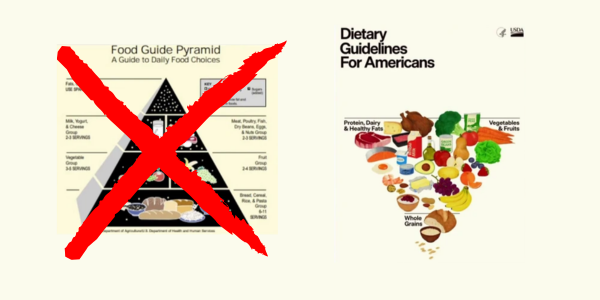



Vitamin D is different from other vitamins because our bodies can make most of what we need with enough exposure to sunlight. Australia is renowned for its sunny weather and outdoorsy, beach-loving lifestyle, yet research says that 23% – or 1 in 4 – of Australians are deficient in vitamin D. So, why is this? And why is vitamin D important for our health?
Vitamin D is a fat-soluble hormone that helps your body absorb the calcium required to maintain bone and muscle health. It also supports the immune and digestive system – without it, viruses, bacteria and parasites can take hold and we may become susceptible to allergies and autoimmune disorders.
Unfortunately, many of us don’t get the amount of vitamin D our body needs. Here are some of the possible reasons why:
Common Risk Factors for Vitamin D Deficiency:
How Do You Know If You’re Deficient in Vitamin D?
Most people don’t realise that they are deficient, because the symptoms are usually subtle, even if they are having a significant negative effect on your quality of life. However, if you tick a few of the symptoms below, it might be a good idea to have your GP perform a blood test for you to identify whether you have a vitamin D deficiency.
Vitamin D Deficiency signs include:
How Much Vitamin D Do We Need to Prevent These Symptoms?
The recommended daily intake is usually around 400-800 IU (international unit), but many experts say you should get even more than that. Correcting a vitamin D deficiency doesn’t have to be hard. You can begin by increasing your sun exposure and incorporating more of the following vitamin D rich foods.
Top 10 Vitamin D Rich Foods:
Fatty seafood such as –
Sardines
100g = 175 IU (44% DV (daily value))
Salmon
100g = 511 IU (128% DV)
Mackerel
100g = 400 IU (100% DV)
Tuna
100g = 93 IU (23% DV)
Oysters
100g = 320 IU (80% DV)
Cod liver oil
1 tsp = 440 IU (100% DV)
Cow’s milk
120g = 98 IU (16% DV)
Eggs
1 large = 41 IU (10% DV)
Mushrooms
Mushrooms when exposed to ultraviolet light have the capacity to produce vitamin D
1 cup = up to 150 – 2300 IU (for some UV-treated varieties)
Liver
100g = 20-30 IU (5-6% DV)
Vitamin D, Sleep and Sunshine
There’s no more abundant source of vitamin D than the sun. It promotes synthesis of the vitamin from cholesterol in the skin. A sensible amount of sun will help give your body the boost it needs to maintain good health. We recommend getting 15-20 minutes daily.
Research has indicated that vitamin D levels also influence both sleep quality and sleep quantity. Unfortunately, some research has suggested that sleep disorders have reached epidemic proportions because so many people are deficient. Read the blog from Changing Habits ‘Low Vitamin D May Not Be About Day Light, But Rather About Darkness’ for more information.
Getting adequate sunshine daily and eating enough of these vitamin D rich foods is a great way to top up your levels of this important nutrient, naturally.
At The Nutrition Academy you will learn so much more about essential vitamins in our Introduction to Nutrition and Functional Nutrition courses.
References



Do you have Doctor Merriment, Dr Sleep and Dr Diet in your life?

Learn how to read labels, understand sneaky ingredient terms, what to look for on packaging and more with our Introduction to Nutrition course. Enrol now!
↳ follow the link in our bio

Everything we do, think, feel and believe impacts our body in ways we don`t fully understand. How do you integrate body, mind and spirit in your life?

Isn`t it interesting, all of the terms we have for things that go on in the background of our lives? We don`t ever go `oh, our body is doing hormesis right now!`, instead it just happens in the background. Do you know any other fun terms like this that you know?

Nothing saves you money more than good health - put money in your pocket with The Nutrition Academy. Learn more about how to improve and nurture your health with our courses. Check them out online.
↳ follow the link in our bio

Valentine`s Day is approaching and if you don`t have a present for your loved one yet, consider making them a high-quality, healthy Valentine`s Day treat. Nothing is better than a delicious, healthy and luxurious treat.

This short clip is from Cyndi`s `Will Being Vegan Save the Planet?` and it`s an interesting look at the world of artificial foods. Should humans be eating that? Should dogs?

Looking to spend less time on social media but still want to keep up-to-date about what`s going on with The Nutrition Academy? Download passion.io in your app store and search for TNA Hub, then log in and keep up with us there!

What do you want to start doing now, to make a brand new, happier and healthier, ending?

Carotenoids are what makes your plate colourful and protect your cells from damage. They`re just one block of what makes up a healthy diet.

Change your life and the life of those you love with The Nutrition Academy.
↳ follow the link in our bio

If your 2026 goal includes eating more protein and/or eating healthier, make sure you know what you`re actually eating and how it affects your body.
